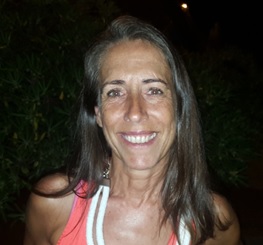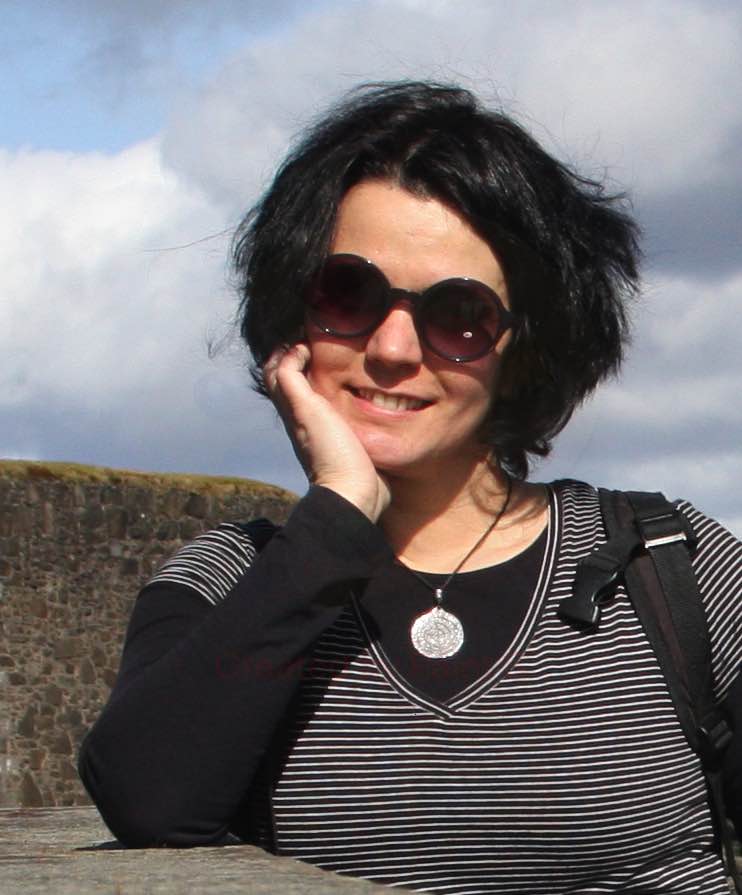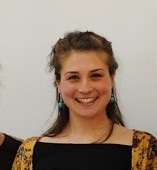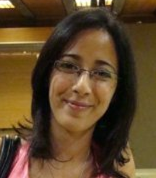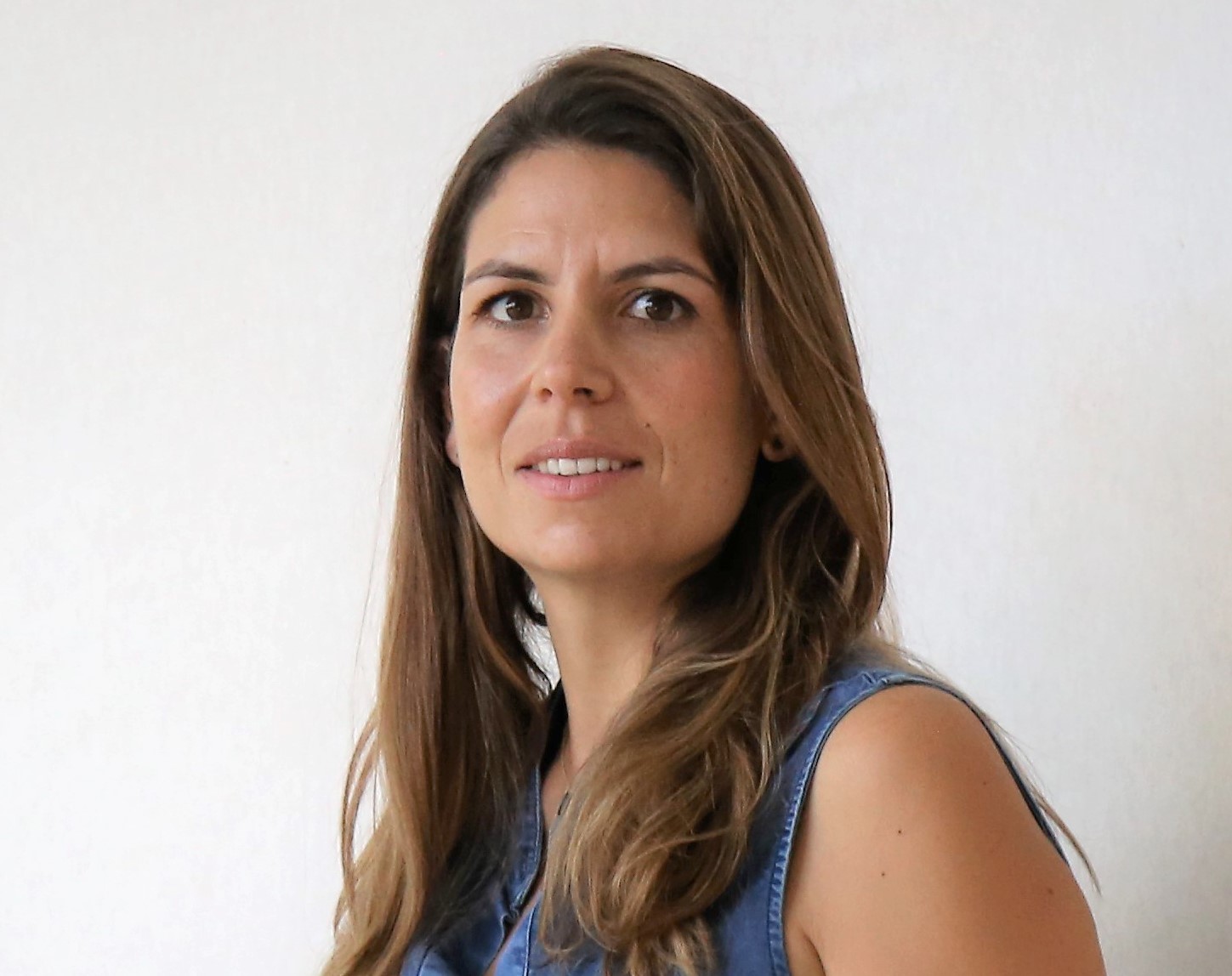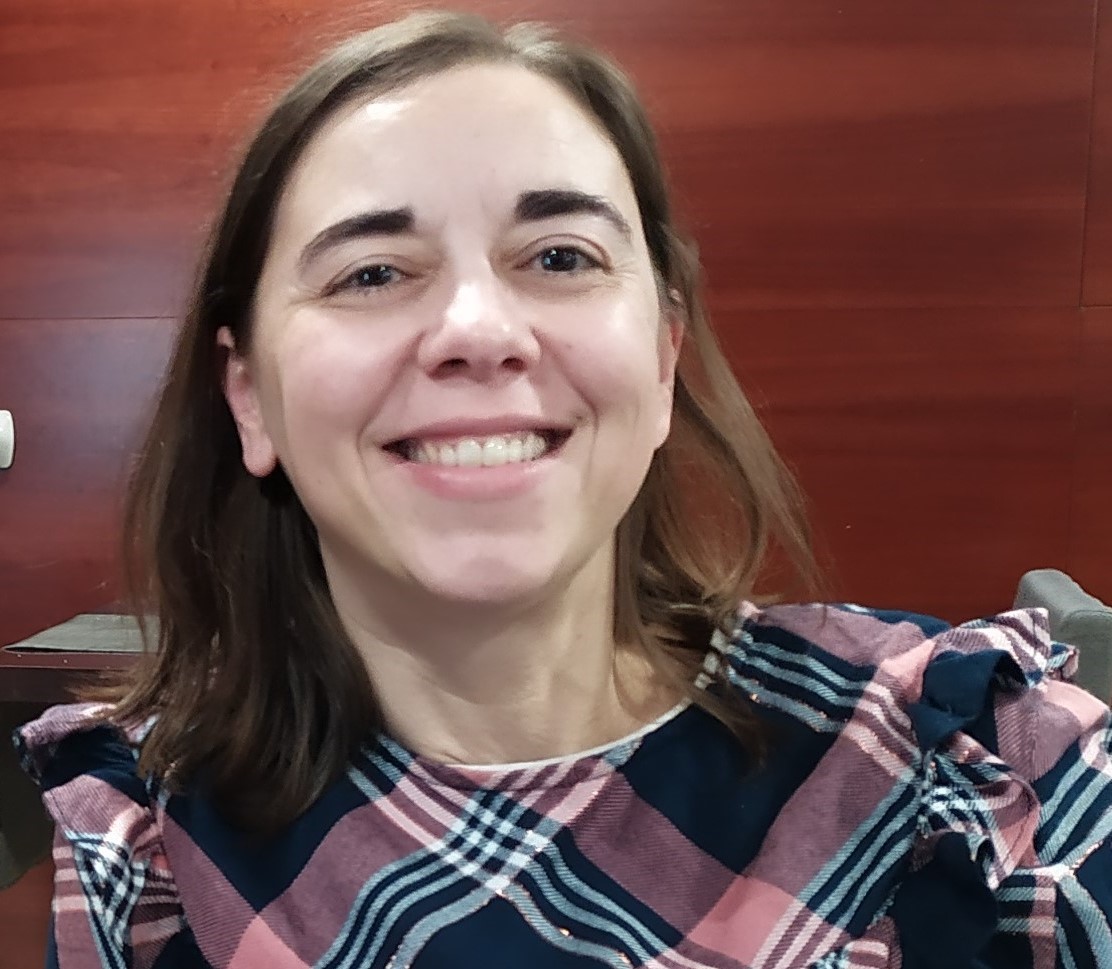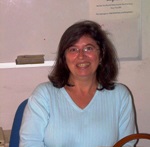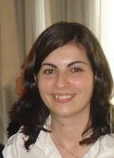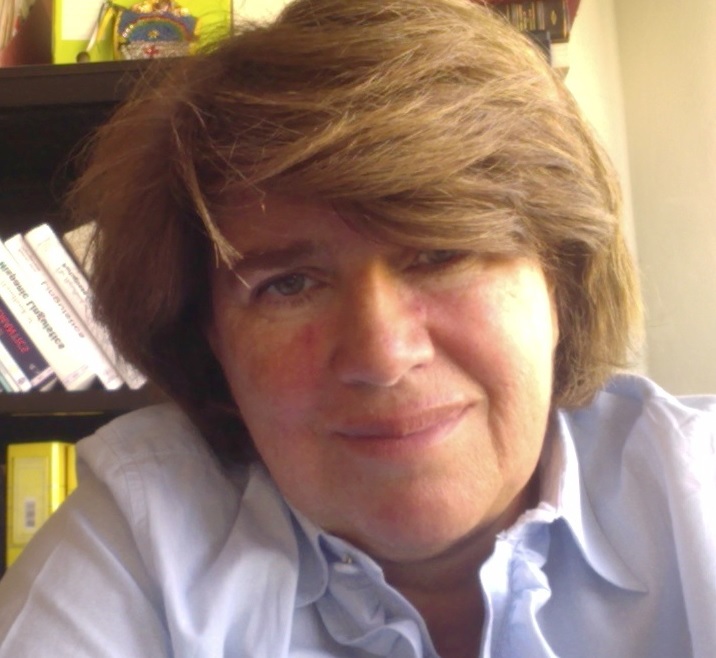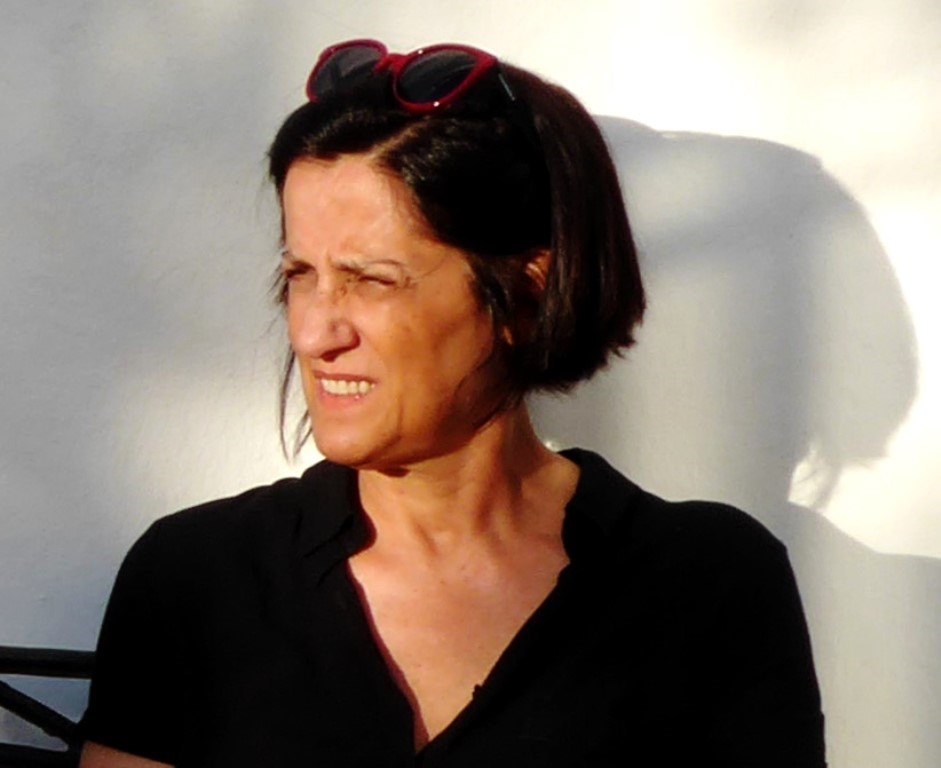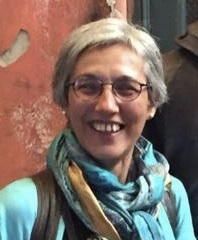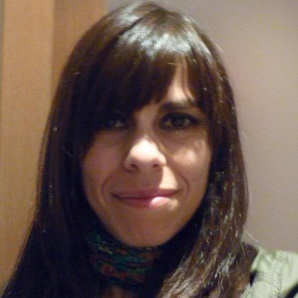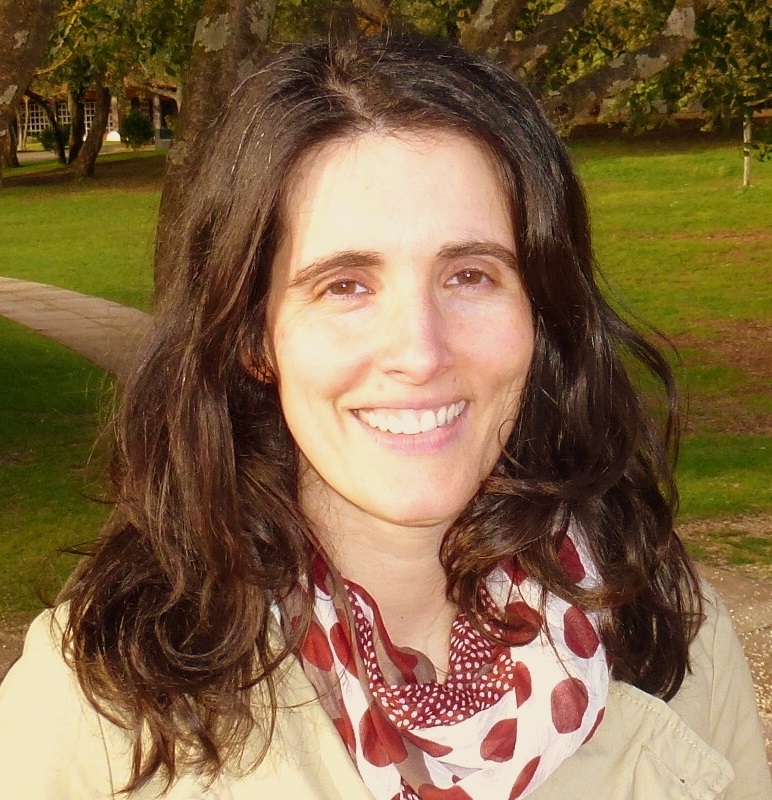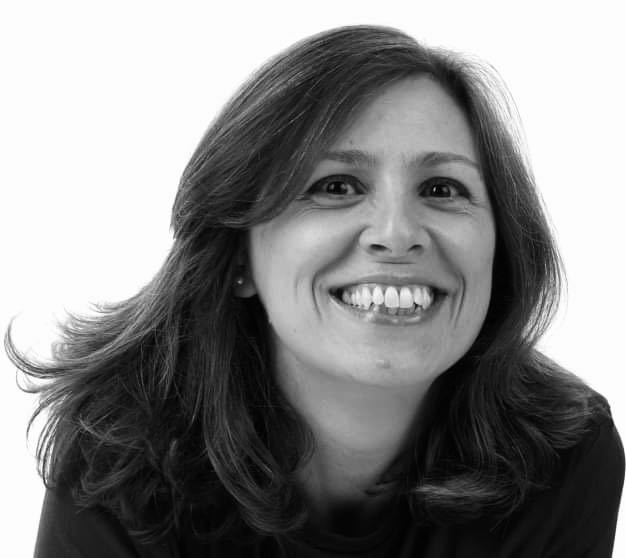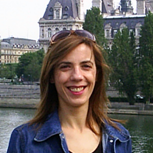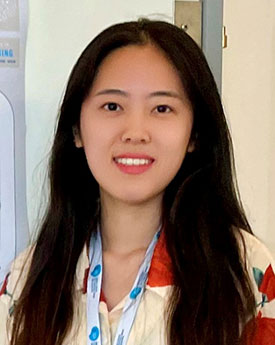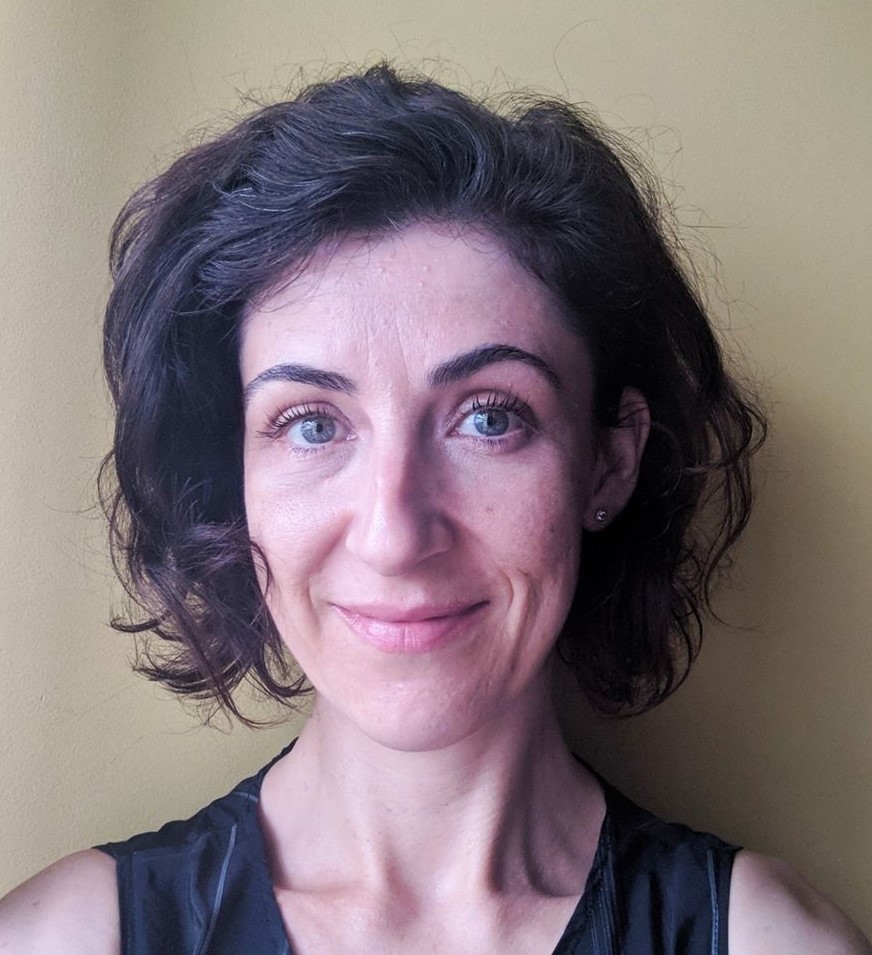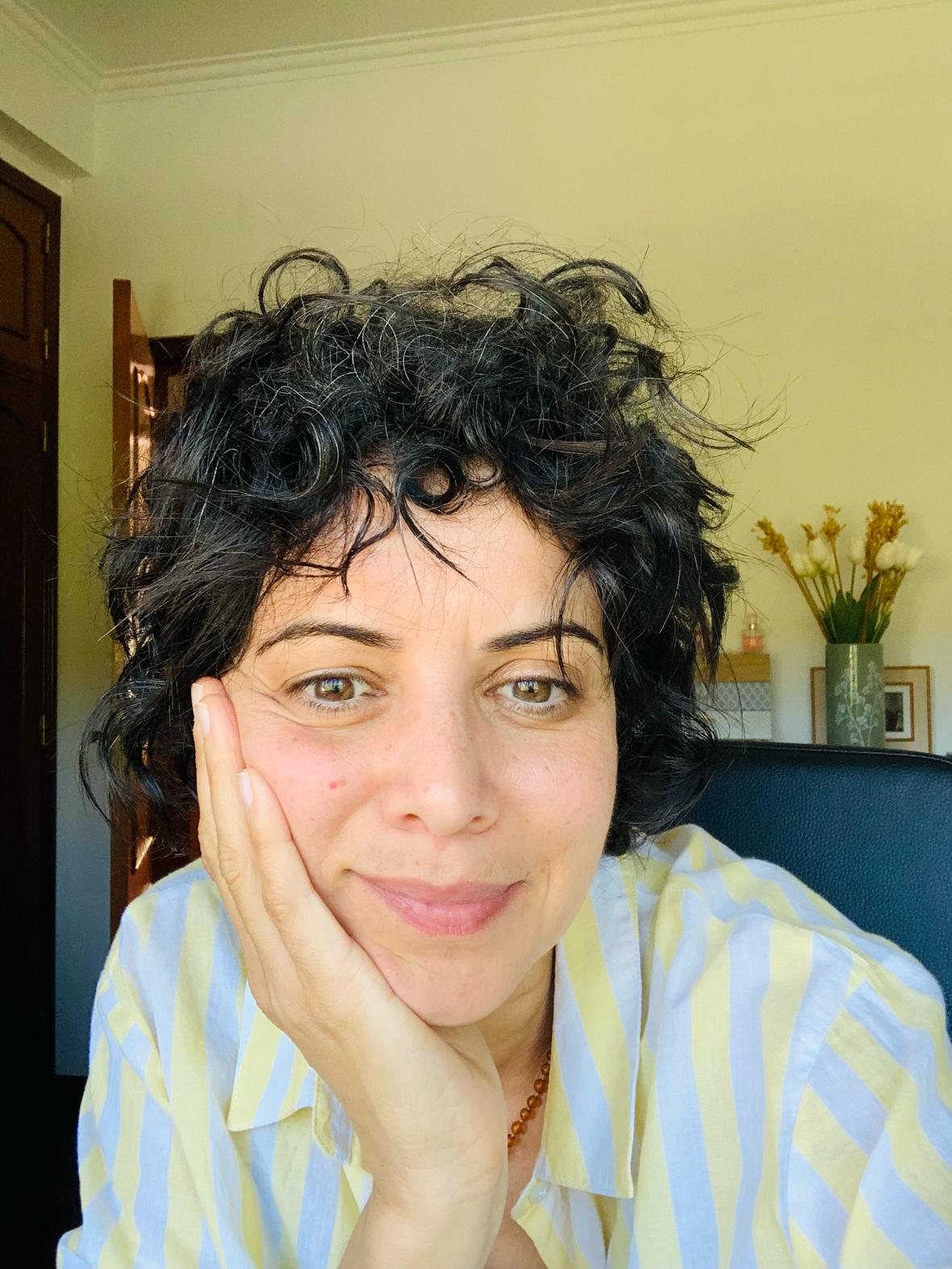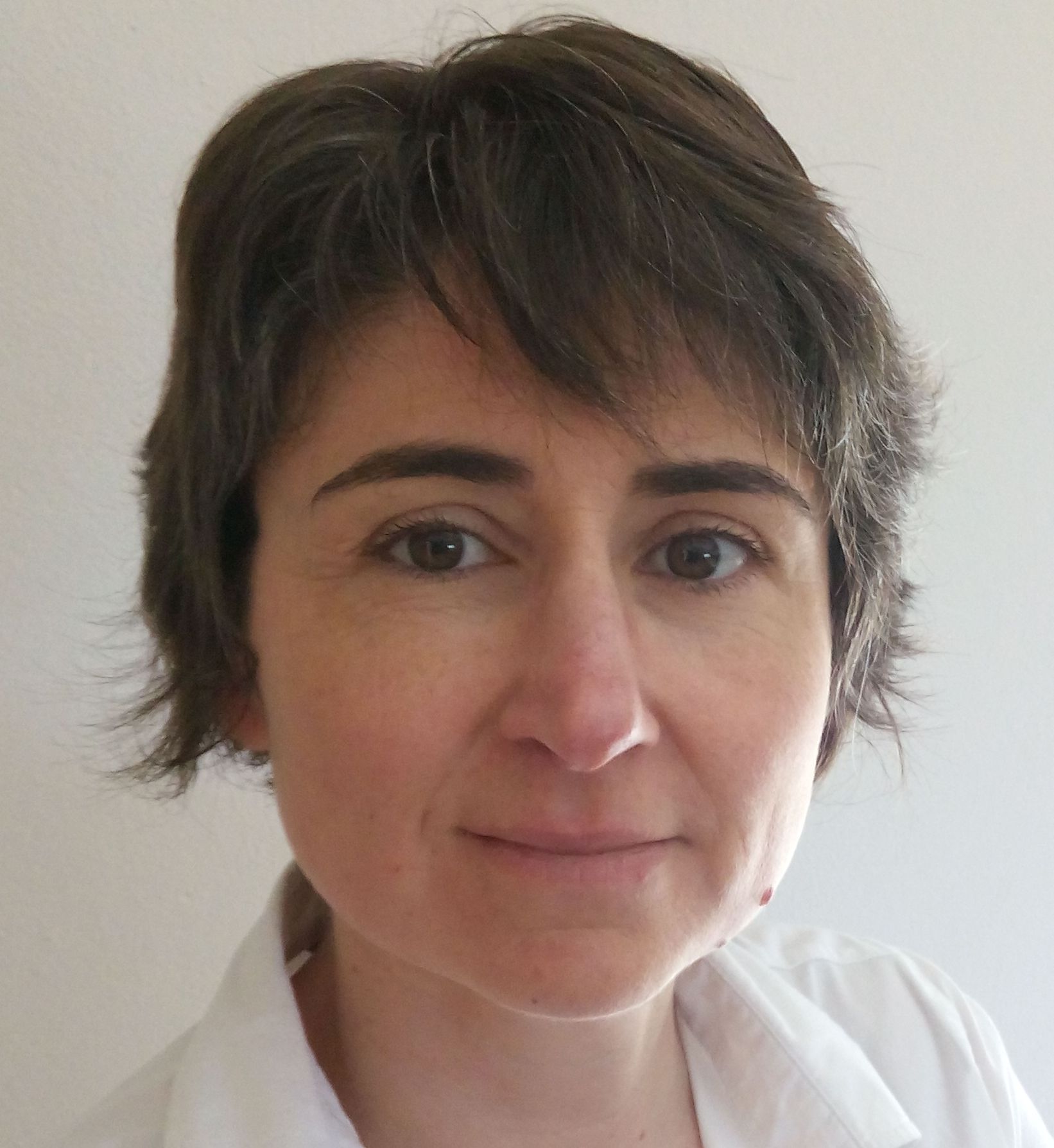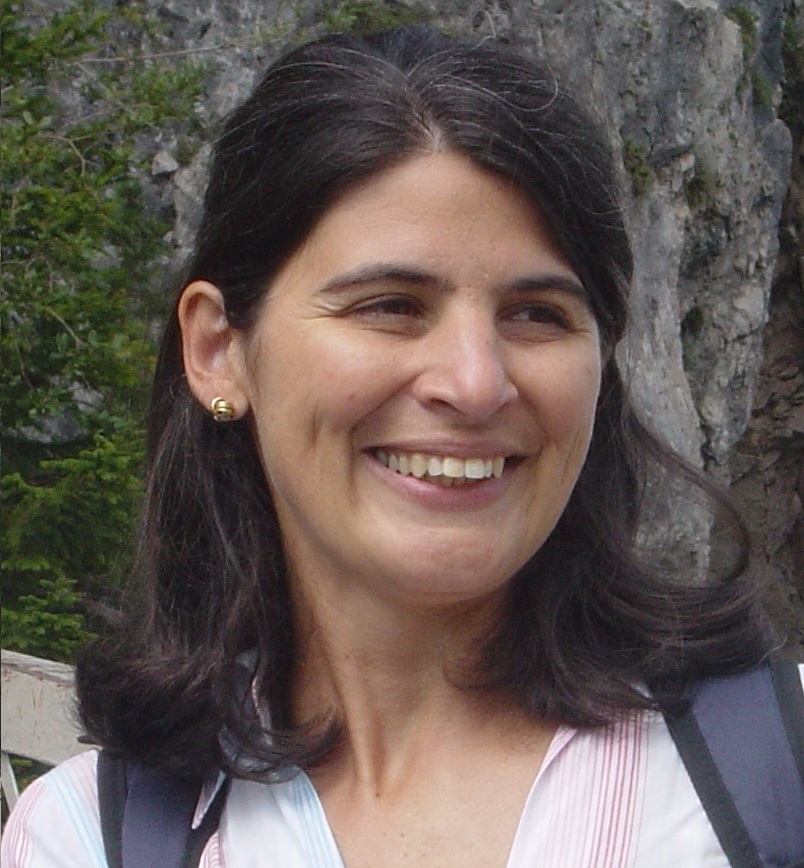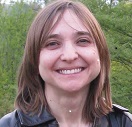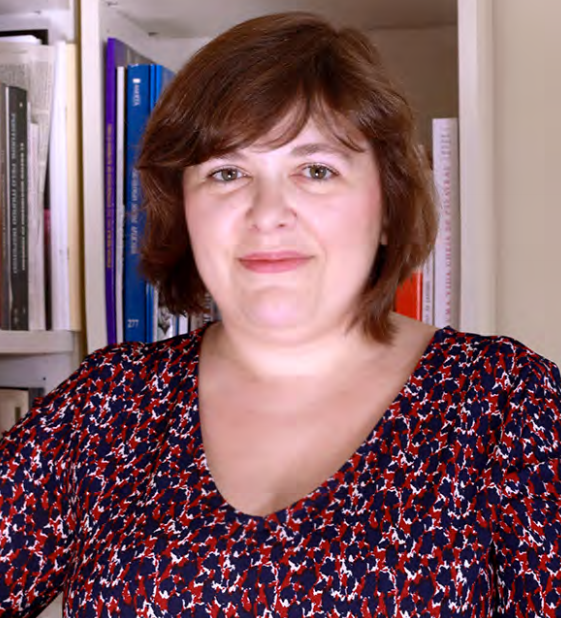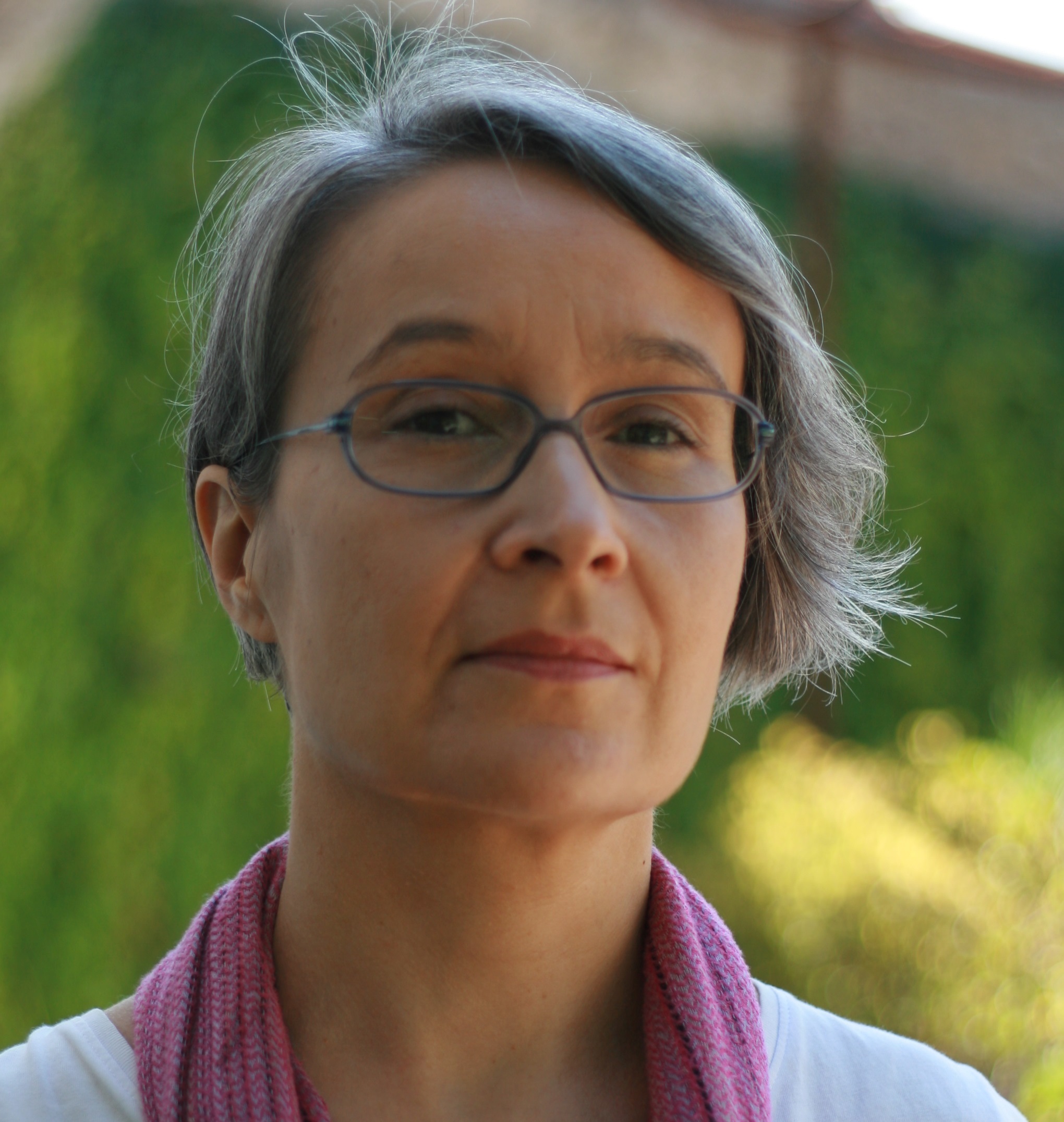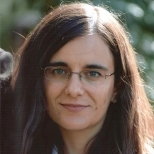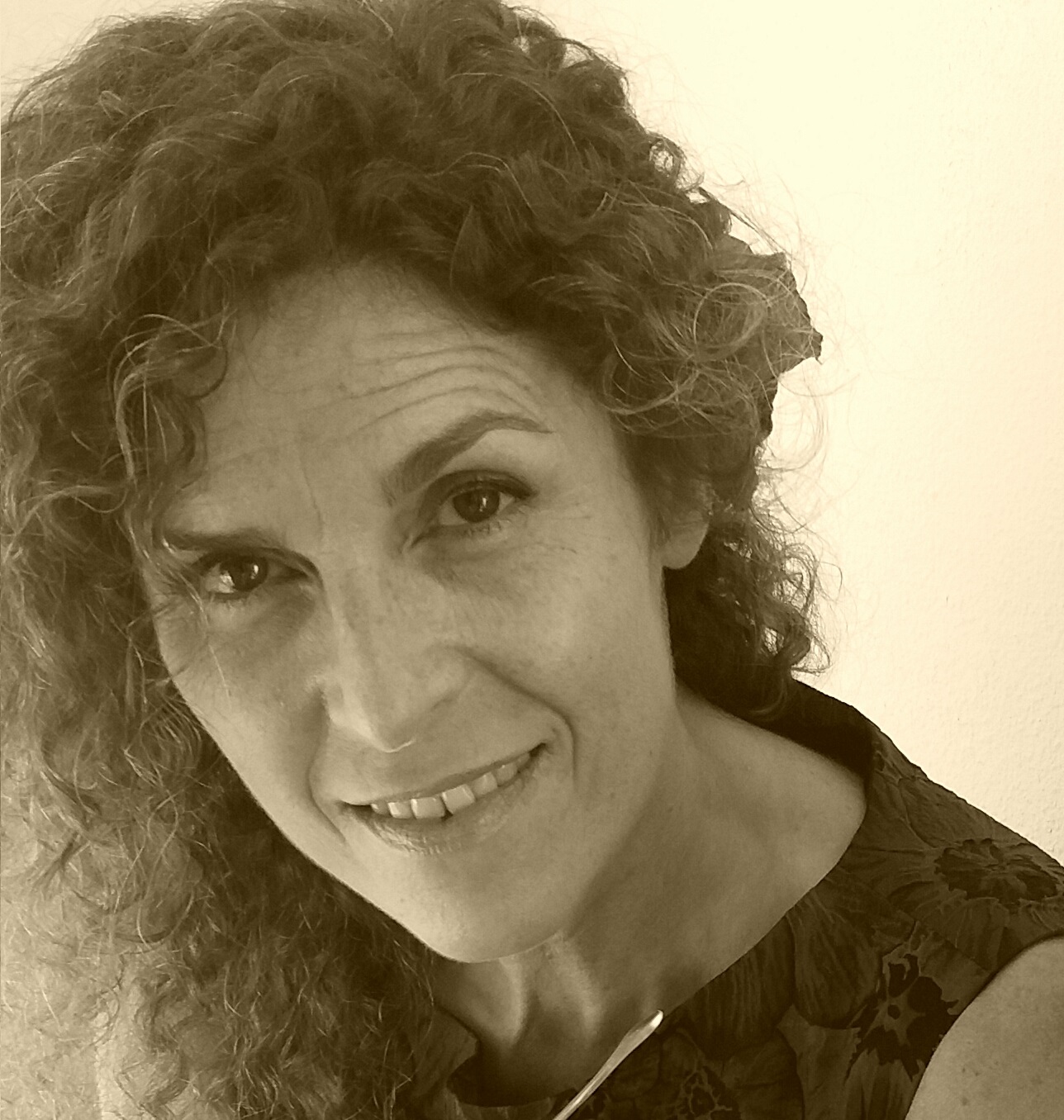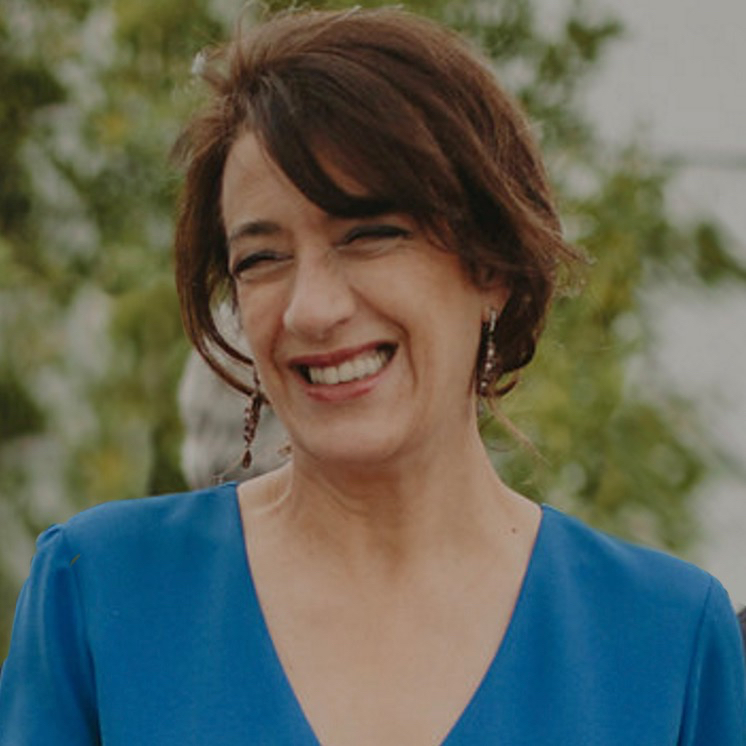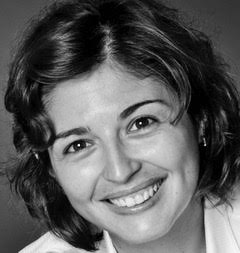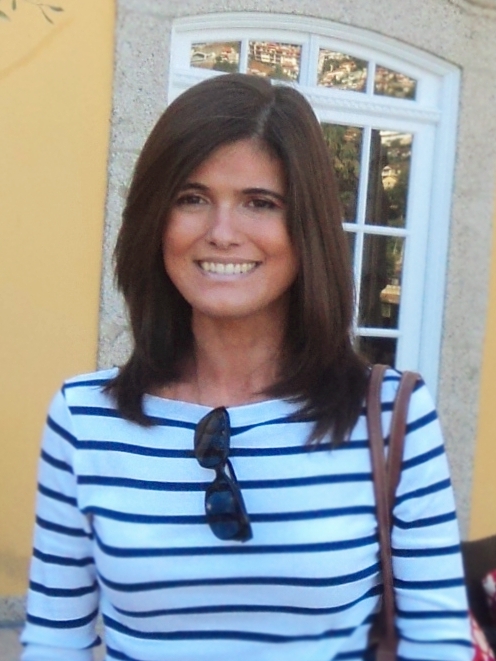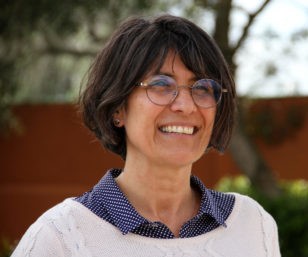Integrated Members
Has a PhD in Linguistics – specialization in Lexicology, Lexicography and Terminology – from NOVA University of Lisbon and in Information and Communication Sciences from Communauté Université Grenoble Alpes in 2019 (under a dual degree PhD programme). Has a Master’s in Information and Documentation Sciences from NOVA University of Lisbon. Since 2019, he is an integrated member of the LLT group of the Linguistics Centre of NOVA University of Lisbon, where he conducts research on multilingual terminology and ontologies in specialised domains.
Member of the Grammar and Text group since 2011, she has been developing research work in the area of Semantics. She is currently a teacher at the Grupo de Recrutamento 300 (Portuguese/French) of Schools Grouping S. João do Estoril.
Having a PhD in Computational Linguistics from the University of Lisbon since 2010, she collaborated and later integrated as a full member the Centre of Linguistics of the University of Lisbon from 1999 to 2015. She is member of the Lexicology, Lexicography and Terminology group of CLUNL since 2015. She participated in many projects, having coordinated 6, in Corpus Linguistics, Computational Lexical Semantics, Lexicography and Language Technologies, from which we highlight the Reference Corpus of Contemporary Portuguese, WordNet.PT, and the ongoing iRead4Skills. She teaches Computational Linguistics, Lexicology and Lexicography and Specialized Corpus courses of the graduation, MA and PhD programs at NOVA FCSH and is supervisor of several PhD and MA projects. She was an invited teacher at Polytechnic University of Macao and Pedagogic University of Maputo and is currently an invited teacher and Board Member of the PhD program on Linguistics and Digital Humanities at Palačký University, Czech Republic. She has also collaborated with Lionbridge as Computational Linguist in parsing and grammar checking development in several projects.
PhD in Linguistics (Lexicology, Lexicography and Terminology) from the School of Social Sciences and Humanities of NOVA University Lisbon, under the supervision of Professor Raquel Amaro and Professor Sara Mendes. She obtained a Bachelor’s degree in Modern Languages and Literature at the University of Turin (Italy) and a Master’s degree in Translation at the Faculty of Humanities of University of Lisbon (Portugal). At CLUNL she participated in HUGOD project – Humanities Going Digital – and she was a research fellow in EXPRIMI project – Preliminary corpus exploitation for inclusive task-based host language teaching – project
PhD in Lexicology, Lexicography and Terminology at School of Social Sciences and Humanities of NOVA University Lisbon, supervised by Professor Raquel Amaro, Professor William Martinez and Professor Teresa Lino. Master (in Phonetics and Phonology) and graduation in Linguistics at the Faculty of Letters, University of Lisbon. She is a member of the Portuguese team in the Project iRead4Skills – Intelligent Reading Improvement System for Fundamental and Transversal Skills Development [101094837]. Researcher (with scholarship) in several projects such as Corpus of Spontaneous Speech in European Portuguese (2006), Portuguese Language Portal (2006-2010), Vocabulary of the Portuguese Language (2009-2010), Project Portuguese Unisyn Lexicon (2010-2013), and European Portuguese-Standard Arabic Dictionary (2017-2020). Currently, she also collaborates at LAPE 4004 in the surveillance and evaluation of CAPLE exams.
PhD in Linguistics and Language Teaching, she was a FCT PhD grant holder (SFRH/BD /73881/2010) and she completed her thesis on relations between Grammar and Reading, under the supervision of Professors João Costa and Ana Costa. She holds a degree in Modern Languages and Literatures – Portuguese and English Studies and a specialization in Language Teaching. She has been a teacher and has collaborated with the Ministry of Education and the Camões Institute. She has participated in research projects in L1 and L2 acquisition and in different areas of Portuguese teaching, such as curricular development, language assessment and development of teaching materials. Since 2017 she is an Assistant Professor in the Linguistics Department of NOVA FCSH and in 2020 she started the individual project “Language and literacy at school: the contribution of metasyntactic abilities to reading comprehension development” funded by FCT (CEECIND/00274/2018).
PhD from Université Paris 8 (Études Portugaises, Brésiliennes et de l´Afrique Lusophone) and from Minho University (Language Sciences, in cotutelle), she is a Guest Assistant Professor for the Department of Humanities at Universidade Aberta. She is an integrated researcher at Linguistics Research Centre of the Universidade NOVA de Lisboa (CLUNL), a member of the Research Group “Grammar & Text”, and a collaborating researcher at the Distance Education and eLearning Laboratory (Le@d) of the Universidade Aberta, where she is part of the El@n group (Teaching Languages Online). She has developed and published research papers in the framework of Semantics, Pragmatics and Discourse Analysis, with particular focus on political discourse, as well as in the area of teaching Portuguese as a foreign language.
Assistant Professor in the Linguistics Department of the Faculdade de Ciências Sociais e Humanas of Universidade NOVA de Lisboa and researcher at Centro de Linguística da Universidade NOVA de Lisboa. Being currently in charge of the database BILP-Bibliography of Portuguese Linguistics (http://bilp.clunl.fcsh.unl.pt/bilp/), has published several works in the area of word-formation, for the most part on productivity, compositionality and lexicalization, among other topics.
Having concluded her PhD in Linguistics 2021, she develops her research in Syntax and L2 Acquisition. She collaborated and, later, was a full member of the Centre of Linguistics of the University of Lisbon. She collaborated on several projects focusing on the Acquisition of Portuguese as first and second language, Portuguese varieties, and (oral and written) corpora annotation. She was an Invited Assistant Professor at NOVA FCSH and ISPA. Now she is a member of the LiFE Group at CLUNL, where she develops her research on Syntax and L1 and L2 Acquisition.
Associate Professor at Escola Superior de Saúde do Instituto Politécnico de Setúbal, PhD in Linguistics by Universidade NOVA de Lisboa and Université Paris 8 (cojoint programme), and researcher in the group LiFE – Formal and Experimental Linguistics of Centro de Linguística da Universidade NOVA de Lisboa. She was a visitor at MIT, University of Cambridge and Laboratório de Psicolinguística e Aquisição da Linguagem da Pontifícia Universidade Católica do Rio de Janeiro. Her research focuses on Language Acquisition and Language Impairment, and currently she is working on the development of assessment and intervention tools for children with language impairment.
Clara Nunes Correia is PhD in semantics by Universidade NOVA de Lisboa. Currently she is Assistant Professor at the Linguistic Department in the same university. She is responsible for undergraduate and post-graduate semantics courses and her main research is developed on reference and on tense and aspect of Portuguese.
Susana Correia is an Assistant Professor in the Linguistics Department of NOVA FCSH and she is a member of the Linguistics Research Centre of Universidade NOVA de Lisboa (CLUNL). Her research interests cover L1 and L2 acquisition and the construction and validation of language assessment tools. She conducts research in the area of phonological development, phonological awareness, language impairment and early markers of language development. She is responsible for the area of teaching Portuguese as a Foreign Language at NOVA FCSH.
Associate Professor with ‘Agregação’ in Linguistics – Lexicology, Lexicography, Terminology, at NOVA University Lisbon. She is also the chairperson of ISO/TC37/SC2 “Terminology workflow and language coding” and, between 2013 and 2016, she was convencer of the ISO/TC37/SC1 WG3 to the standards ISO 704 and 1087. Between 2000 and 2006, she was the chairperson of the European Association of Terminology (EAFT). At NOVA FCSH she teaches Terminology, Theories in Terminology, Terminology and Ontologies, among others. At present, she is a guest lecturer at Université Savoie Mont-Blanc, France. She was a guest lecturer at University of Luxembourg and Universidade Agostinho Neto, Luanda. She is guiding a dozen of PhD theses, some of them co-tutelary. In 2011, she was awarded with the Order “Chevalier de l’Ordre des Arts et des Lettres”.
Associate Professor at School of Social Sciences and Humanities of NOVA University Lisbon (NOVA FCSH) and researcher at Linguistics Research Centre of NOVA University Lisbon (CLUNL). She has a PhD in Linguistics – Text Theory and is developing research within Grammar & Text research group. She is mainly interested in Socio-Discursive Interactionism theoretical and epistemological framework, focusing on the following issues: a differential description of text genres, the relationship between text genres and styles, teaching/learning grammar and text, writing and writing development, parity in language
Master and PhD in Linguistics (Lexicology – Lexicography – Terminology) at the School of Social Sciences and Humanities of the Universidade NOVA de Lisboa, graduated in Romance Philology at the Faculty of Letters of the University of Liège (Belgium). Researcher in the area of terminology and legal translation and teaching/learning French Foreign Language, particularly in its specialized aspect. French language lecturer at the universities of Bologna and Ferrara (Italy) (1995-1997), at the Faculty of Letters, University of Lisbon (1997-2001) and at the Faculty of Social and Human Sciences, New University of Lisbon (2001-2013). Invited assistant at the Superior School of Education, Polytechnic Institute of Santarém (2010-2013). She is currently invited assistant professor at the School of Social Sciences and Humanities of the Universidade NOVA de Lisboa, teaching didactics of French, translation and French language.
Susana Duarte Martins is an assistant professor at NOVA FCSH (Department of Portuguese Studies) with a PhD in Linguistics and an integrated researcher at the Linguistics Research Center of NOVA University of Lisbon. She taught Portuguese Language and Culture for Foreigners at the same university and has collaborated in the assessment and implementation of the CAPLE (Centre for Evaluation of Portuguese as a Foreign Language) exams. Currently, she is coordinating the project “TERMVEST – The Clothing Terminology: European Portuguese version”, in partnership with the Federal University of Rio de Janeiro. As a linguist project manager for an international company, she has worked with issues of Portuguese phonology and Text-To-Speech technologies. Susana performs research work in lexicology, lexicography, and terminology, foreign language and language for specific purposes teaching and learning. Besides linguistic proofreading, she has experience and training in creative writing, screenwriting, and journalism. She is a former Portuguese L1 and L2 teacher for the Portuguese Ministry of Education.
Adjunct Professor in the Escola Superior de Educação de Lisboa and researcher at the Centro de Linguística da Universidade NOVA de Lisboa. She develops research in Language Acquisition, Syntax and Writing. She has presented communications and has published papers on her research topics.
PhD in Linguistics (Text and Discourse Linguistics) and MA in Linguistic Revision and Consultancy awarded by Universidade NOVA de Lisboa. She is a researcher at Centro de Linguística da Universidade NOVA de Lisboa and a member of the Grammar & Text research group. She carries out research on translation revision, privileging the articulation between the epistemological framework of Socio-Discursive Interactionism and Translation Studies. She has been working as a freelance translator and reviser for several years and completed an internship at the Directorate-General for Translation (Brussels). She is currently a guest lecturer at the Linguistics Department of NOVA FCSH.
Assistant Professor at the School of Social Sciences and Humanities of the Universidade NOVA de Lisboa, teaching courses in syntax, variation and second language teaching. She is also a researcher in the Linguistics Research Centre of Universidade NOVA de Lisboa, participating in projects in the areas of Portuguese syntax (synchronic and diachronic), acquisition of Portuguese as first and second language, teaching/learning of Portuguese as second language and material development for second language teaching.
Yuxin Ge is a postdoctoral researcher in second language (L2) phonology at CLUNL, currently supported by an ERA Fellowship under the HORIZON-WIDERA-2024-TALENTS-02-01 call. Her research investigates how adult learners acquire non-native phonological features and vocabulary, focusing on the cognitive mechanisms underlying learning and individual differences in learning outcomes. Yuxin holds a PhD in Linguistics from Lancaster University (UK), where her doctoral research used a cross-situational statistical learning paradigm to examine the acquisition of non-native words by adults. During her PhD, she contributed to the ProPerL2 project at CLUNL [FCT grant agreement 2022.04013.PTDC], and subsequently held a postdoctoral position at CLUNL funded by the Global Advancement Fund from Lancaster University.
Matilde Gonçalves, who holds a PhD from Université Paris 8 and Universidade NOVA de Lisboa, is an assistant professor at the Faculty of Social and Human Sciences of Universidade NOVA de Lisboa and a researcher at the Linguistics Centre of Universidade NOVA de Lisboa (CLUNL), where she works in the Grammar & Text group. Framed in text and discourse linguistics, particularly socio-discursive interactionism, her work focuses on language and mediation, the development of human beings throughout life through language practices, the relationship between social activities, genres and texts and scientific literacy.
PhD in Historical Linguistics from the School of Social Sciences and Humanities of NOVA University Lisbon. She is a member of the Grammar & Text research group at CLUNL. Her research focuses on the Historical Morphology of Portuguese, namely in the field of analogy and grammaticalization. Her other areas of interest are Historical Pragmatics, more specifically in the area of Courtesy. She has published works on Forms of Address and Morphology from a diachronic perspective. She has published work on Forms of Address and Morphology from a diachronic perspective. She has a degree in Modern Languages and Literatures – Portuguese and English Studies and a master’s degree in Historical Syntax of Portuguese from the Faculty of Letters of the University of Lisbon. She is currently a Visiting Assistant Professor at the FCSH and a Visiting Adjunct Professor at the Santarém School of Education. She also has extensive experience in teaching Portuguese (mother tongue and non-mother tongue).
Noémia Jorge is a researcher at the Linguistics Research Centre of NOVA University Lisbon and, currently, an Assistant Professor at Escola Superior de Educação e Ciências Sociais do Politécnico de Leiria (School of Education and Social Sciences of Polytechnic of Leiria). She has a PhD in Linguistics (specialist in Text and Discourse Linguistics) and her main research areas are text Linguistics and Portuguese Language Didactics.
Associate Professor with ‘Agregação’ at the Linguistics Department of the School of Social Sciences and Humanities of Universidade NOVA de Lisboa. Researcher at CLUNL and Collaborator at CLUL. Her main research interests are in the following areas: Syntax, Language Acquisition, Linguistic Variation.
Associate Professor in the Department of Linguistics of the School of Social Sciences and Humanities, teaching courses in general linguistics, syntax and second language acquisition. She is also a researcher in the Linguistics Research Centre of Universidade NOVA de Lisboa, participating in projects in the following areas: syntax (synchrony and diachrony of Portuguese); language policies; acquisition of Portuguese as a first and second language; material development for second language teaching.
Isabelle Simões Marques holds a PhD in Linguistics – Discourse Analysis (co-supervised with Université Paris 8, France). She is an Assistant Professor at Universidade Aberta (Portugal). She is a PhD Researcher at UIDB-FCT nº 03213 at the Linguistics Centre of the NOVA University of Lisbon (CLUNL) and a Collaborating Researcher at UID-FCT nº 4372, Laboratory of Distance Education and eLearning (LE@D) – Universidade Aberta, where she coordinated the EL@N (Online Language Teaching) project. She is also a collaborating researcher at the Centre for Global Studies (CEG) – Universidade Aberta. She has developed and published research in the fields of (Critical) Discourse Analysis, Sociolinguistics and Foreign Language Teaching, and has also favoured studies on plurilingualism and migration.
Ana Sousa Martins holds a degree in Modern Languages and Literatures – Portuguese Studies from the Faculty of Arts of the University of Porto and a degree in Modern Languages – Anglo-American Studies from the Faculty of Arts of the University of Coimbra. She has a master’s and a Ph.D. in Portuguese Linguistics from the Faculty of Arts of the University of Porto. She conducted a Post-Doctoral project in Portuguese Second Language Acquisition, funded by FCT, at the Faculty of Arts of the University of Lisbon (Ref.SFRH/BPD/40498/2007). She is an integrated member of the Linguistics Center of the Nova University of Lisbon; author of 11 books (2 in linguistics research and didactics; 9 related to Portuguese as a Second Language teaching); and has presented 50 articles and communications at national and international conferences. She has served on various academic juries as the main arguer and as a member of the Scientific Committee of several international congresses. She is the founder and coordinator of the Ciberescola Project – Learning Portuguese as a Second Language: www.ciberescola.com
Teresa Oliveira holds a PhD in Portuguese Linguistics from the Universidade NOVA de Lisboa, and is an assistant professor (“professora adjunta”) at the School of Education and Social Sciences of the Polytechnic Institute of Portalegre. She develops research in Semantics, and has presented papers and published scientific articles, particularly in the fields of modality, evidentiality and verbal typologies. She develops teaching activity in courses of teacher training and journalism and communication.
Holds a PhD in Linguistics – Lexicology, Lexicography and Terminology – from the NOVA University Lisbon, and in Sciences de l’Information et de la Communication by the Université Savoie Mont Blanc (cotutelle programme). She has collaborated with the Linguistics Center of NOVA University Lisbon as a Doctoral Fellow, within the Knowledge, Representation and Use (KRUse) programme, granted by the Fundação para a Ciência e Tecnologia (FCT) of the Ministry of Science, Technology and Higher Education (MCTS), and at the Laboratoire d’Informatique, Systèmes, Traitement de l’Information et de la Connaissance (USMB). She is currently a researcher within the Lexicology, Lexicography and Terminology (LLT) group. She is also a member of IPQ’s CT 221 Terminologia, Língua e Linguagens and of ISO TC 37, Language and Terminology. Her research interests focus on terminology, ontologies, lexicography, and corpus linguistics.
PhD in Linguistics (specialization area in Text and Discourse Linguistics) from NOVA University Lisbon. She is a researcher at CLUNL and a member of the Grammar & Text Group. Prioritizing the theoretical and epistemological framework of Sociodiscursive Interactionism, she has developed research focused on the description and didatization of text genres. Currently, she is teacher and tutor at Universidade Aberta (Introdução aos Estudos Linguísticos e Técnicas de Expressão e Comunicação I) and a teacher of Portuguese language at Escola Profissional de Artes, Tecnologias e Desporto.
Assistant professor of Linguistics and director of the Mestrado em Estudos de Língua Portuguesa at Universidade Aberta, Lisboa. She is member of the Linguistics Research Centre of the Universidade NOVA de Lisboa, and also member of Grupo de Investigação Pragmática. Discurso. Cognição (PraDiC) do Centro de Estudos Humanísticos da Universidade do Minho. She collaborates on research projects at Laboratório de Educação a Distância e e-learning (LeaD) of the Universidade Aberta de Lisboa. Her PhD is in the area of Portuguese Linguistics and her current research focuses on pragmatics, discourse analysis, rhetoric, epistolary, discourse analysis of computer mediated communication and social and linguistic effects of digital technologies.
Gabriela Tavares has a Master in Portuguese as a Foreign Language (L2/LE) by the Faculty of Arts and Humanities of the University of Porto, and a PhD in Language Teaching – Multilinguism and Education for a Global Citizenship, by NOVA FCSH/Universidade Aberta. She teaches Portuguese L2, collaborating with various institutions in Hungary, and is currently the Portuguese lecturer at the Centre for Foreign Language Education and Research of Corvinus University, in Budapest. She carries out research work in L2 Phonology acquisition, with a focus on the acquisition of European Portuguese.
Researcher at the Linguistics Centre of NOVA University Lisbon, in the Grammar & Text group, holds a PhD in Text and Discourse Linguistics, with a grant from the Foundation for Science and Technology, from NOVA University Lisbon. She develops research within the framework of Sociodiscursive Interactionism and has written articles on acting, the description and teaching of text genres, the role of the expert, argumentation and writing. She is also a researcher in the HISTEL group, Historicity of Texts and Language Teaching (https://histel.com.br). She currently teaches at the School of Education of the Polytechnic Institute of Lisbon, as an adjunct guest teacher.
Assistant Professor in the Department of Linguistics of the Department of Linguistics of the School of Social Sciences and Humanities and researcher in the Linguistics Research Centre of Universidade NOVA de Lisboa. Her main research areas are generative second language (L2) acquisition, comparative syntax, and L2 teaching. Her work focuses on English and Romance languages, particularly European Portuguese. She has participated in funded research projects in the following areas: L2 acquisition, learner corpora, and L2 teaching.
Helena Topa Valentim is an assistant professor at the School of Social Sciences and Humanities of the NOVA University Lisbon (NOVA FCSH) and a researcher at the Linguistics Research Centre of the NOVA University Lisbon. She has a PhD in Linguistics, specializing in Semantics, and conducts research in this scientific area and in Portuguese Linguistics as well as, more recently, in the Didactics of the Mother Tongue.
 PT
PT

